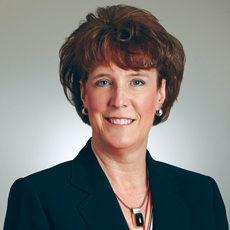
The Institute for Healthcare Improvement (IHI) released a statement saying that RaDonda Vaught’s conviction for a fatal medical error has already damaged patient/resident safety and should serve as a wake-up call for healthcare leaders to improve harm/error prevention efforts.
Ms. Vaught was convicted March 25 of criminally negligent homicide and abuse of an impaired adult for a fatal medication error she made in December 2017 while working as a nurse at Vanderbilt University Medical Center in Nashville, TN.
IHI went on to say, “Were this practice to be repeated in future cases of a serious or fatal error, there will be more damage, less transparency, less accountability, and more lives lost.” What was not said in their press release is being said on social media outlets,
“Should I continue to be a nurse?”
The pandemic has given caregivers enough to deal with, now they are contemplating that a medication error could bring criminal charges against them. Not the best recruitment tool for future providers.
I was the keynote speaker at a conference where more than 1,000 nurses were in the audience. I asked them to turn the lights up and looked out onto the audience. How many of you remember the first medication error you made as a nurse? Hands went up across the audience. I could not find a hand not raised. I then asked, how many of you still feel some portion of guilt about your medication error? Only a handful lowered their hands indicating that they no longer felt guilty about their error.
I was speaking on moral injury and the impact of accumulative distress to care providers. The fact that almost 100% of those in the audience still felt shame and guilt for their medication error was reflective of the research on why care providers disengage and/or burnout.
We also know from research on error prevention that it is rarely one action that causes an error. Medication administration is a system with many points of potential failures. Yet, when the error occurs, the individual who administered the medication is the one who is found to be the causative reason for the error. They failed to perform the five rights of medication administration: right patient, right drug, right dose, right route and right time. They’re the goals of the medication process, not the safeguard and be all of safety. The five rights focus on individual performance and not on human factors and system defects that may make completing the tasks difficult or impossible.
We have normalized chaotic workflows, expecting human beings to adapt and still preserve safety. We have normalized interrupting an individual who is in the process of concentrating on a task that could have life-threatening consequences. Yet we still ask our question. We have normalized that we as leaders are accountable for creating safe environments but have delegated it to a certain role within our facilities.
IHI is correct: Ms. Vaught’s conviction is a wake-up call for leaders. We have institutionalized safety by requiring it to be someone’s job. When my own father suffered multiple medical errors that ultimately led to his death, the healthcare system could have looked at his case and examined how their systems of care had failed. Instead, they sent their designated person to check the boxes.
The wake-up call for leadership is not to keep doing the same thing that has been done to improve safety. The wake-up call is to have fire in the gut, to be relentless in creating safe environments and, dare I say, be disruptive.
When systems of safety have been normalized, they are no longer safe. If you do not believe that, pause and reflect again on the five rights of medication administration.
Could you have 100% confidence that any medication being given to you is correct based on the five rights? Reflect further that in a room of over 1,000 nurses, all raised their hand that they had made a medication error, including myself.
Ask yourself, what can be done to make the five rights a system of safety for medication administration, not a person-dependent policy?
It is time for systems to be made safer and for leaders to hear the call.
Martie L. Moore, MAOM, RN, CPHQ, is the CEO of M2WL Consulting. She has been an executive healthcare leader for more than 20 years. She has served on advisory boards for the National Pressure Injury Advisory Panel and the American Nurses Association, and she currently serves on the Dean’s Advisory Board at the University of Central Florida College of Nursing and Sigma, International Honor Society for Nursing. She was honored by Saint Martin’s University with an honorary doctorate degree for her service and accomplishments in advancing healthcare.
The opinions expressed in McKnight’s Long-Term Care News guest submissions are the author’s and are not necessarily those of McKnight’s Long-Term Care News or its editors.





